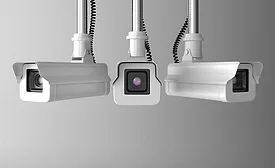Home » campus security
Articles Tagged with ''campus security''
University Campuses Take Center Stage
Criminals see campuses and universities as soft targets, while political activists see them as big opportunities.
October 1, 2017
Sign-up to receive top management & result-driven techniques in the industry.
Join over 20,000+ industry leaders who receive our premium content.
SIGN UP TODAY!Copyright ©2026. All Rights Reserved BNP Media.
Design, CMS, Hosting & Web Development :: ePublishing






